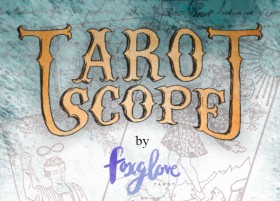Let me ask you a simple question. Are you a feminist? I’m sure that many of you can easily answer this question. After all, your belief defines you: either you’re a feminist or you’re not. Either you believe in gender equality or you don’t. Either you’re sexist or you’re not. Either you support patriarchy or you don’t.
Simple question, right? Right?
I’ve also been asking myself that question, but I would honestly say that up to this point, I still don’t know. But you learned feminism in your Bachelor study? But your girlfriend is a feminist? But you find it problematic to see women’s identity reduced into mere baby-carriers? Surely, you must be a feminist?
I can find many reasons to say that I am a feminist, but somehow something keeps nagging at me. Saying I’m a feminist can be a gateway to another mini existential crisis. I know some of you feel the same way, after all, you’ve shared your concerns on Magdalene, a safe haven whose motto is “we aim to engage, not alienate.”
I was raised a conservative, which means I had wasted years of my life ignorant of the force of patriarchy. My first encounter with feminism was a couple of years ago in college. I took Literary Criticism course, and on one particular day, three lecturers were introducing three topics they were about to teach throughout the term. As a devout still, I had already been disturbed and pissed off by a lecture on Freudian psychoanalysis, particularly on Oedipus Complex, then suddenly a female lecturer came up front and started talking about male privileges and oppressions. My initial reaction was none other than “what the fuck?” (Or, “Jesus!” or “My God!” Because cursing was something sinful for me back then).
By the end of the term, however, I had developed at least two thoughts about feminists. First, they must be liberals who want to give freedom to gay couples. Second, they must be lesbians who wish to end heterosexuality, abandon religion, cut off penises, torture men, and have a sex party before finally being condemned to hell by God for eternity. Turns out I am quite right about the former, but definitely not the latter.
Fast forward to a couple of years later: my girlfriend introduced me to Magdalene. She also patiently took me to different heartwarming, witty discussions and movie screenings filled with clever and kind liberals. Besides that, I constantly read Magdalene’s articles, and learned of the struggles and inner conflicts that weigh people under the pressures of patriarchy and fundamentalism.
By 2015, I had gradually changed, thanks to the writings on Magdalene. It was not an easy process for sure. I had to struggle with the residue of beliefs and tenets that had been deeply rooted in me, but I had begun to believe that patriarchy is real and that feminism is necessary to end it. At the end of the year, I submitted my first writing to Magdalene, discussing religion’s oppression of gay people. I was super excited. I feel born again. I feel that I was a totally changed man.
Except that I was, probably, not.
It is difficult to notice sexism that comes from 'without', but it is more difficult to admit sexism that comes from 'within'.
If this story sounds like the story of a person newly converted into a religion or a super-excited MLM newbie, it’s probably because it sometimes does feel like it. But unlike religion or an MLM’s success story, believing in feminism (and humanism) has not been as smooth – at least for me.
As I reflect on this relatively new ism I believe in, I find myself failing to put the theories into practice. For sure, now I am capable of using feminists’ critical theories to look at cultural phenomena that happen around us and make feminism-based academic papers. I may now be able to identify some sexist/misogynistic movies. I am now bothered by sexism on video games or in songs. But despite these newbie capabilities, I can’t say that I have successfully become a feminist on a daily basis.
It is difficult to notice sexism that comes from without, but it is more difficult to admit sexism that comes from within. If I compare the progressive theories I believe with the habits I do every day, I can always find feminism-related inconsistencies, stupidity, or even hypocrisy in my actions, and they can sometimes be irritating.
A case in point: Recently I watch a Saturday Night Live skit starring Sofia Vergara as herself and Kate McKinnon playing Penelope Cruz. In the skit they are shooting a shampoo commercial. The video is a parody of Pantene commercial: an advertising director, obviously male, tells the actresses to read a few words while posing fabulously for the commercial.
The scene shows the difference in treatments between the two woman: Vergara gets to say line with simple, everyday, easy-to-pronounce words, while Cruz has to say tongue-twisting Latin words that make up the shampoo chemicals. The whole comedic situation sprung up from this premise.
I first watched it after my first piece was published by Magdalene. Despite having successfully written a piece that tried to fight oppression, I couldn’t stop laughing at the skit.
I decided to share the fun by showing my girlfriend the video so – I thought – we could have a good laugh together. To my surprise, she only gave a disinterested, cold laugh (and I’m grateful forever for that). After the video ended, she said, “It was kind of racist.” When she said that, it almost felt like I was hit by an invisible train. Holy shit, it IS racist. “Oh my God, and sexist, too.” I added. To which she agreed.
The invisible train wreck gave me a moment of reflection that has not stopped ever since. I felt so bad on that day. I still feel bad when I’m writing this piece.
Later I found out that there’s this whole context about jokes on Vergara as a public figure. Vergara herself has been using her constructed exoticism to make offbeat (but somehow unfortunately socially acceptable) jokes in order to create her persona. If you’re interested to look for more details, this webpage has listed all Vergara’s superfluous effort to win the audience. So Vergara has done this a couple of times, and this SNL skit might be a self-parody that aims to criticize orientalist culture in American media.
However, one thing still feels odd. If it was a consciously done parody, it should mean that Vergara is humorously giving the middle finger to the society. But the most recent gag she pulled was her Golden Globe Awards speech, in which she deliberately said “anal” instead of “annual”. And this happened three years after the SNL skit was uploaded to YouTube. So despite the parody, Vergara is still playing a clown in front of the camera. Was the skit a satire? Has Vergara been consciously aware and fought back against the very racism that belittles her? It just doesn’t add up.
I believe that in every one of us there is a certain degree of sexism that we need to constantly fight against. Without realizing it, we all may be a bunch of sexist-feminists.
Whether the skit was sexist or a parody is probably still up to debate. It could still be a satire, considering that SNL skits did make fun of different stuff like sexism and Trump’s supporters. But when I watched the video, I didn’t know anything about SNL skits or Vergara’s long history of self-exoticizing. Even if the skit was not sexist, my perspective probably was.
So, why did I laugh? I can give myself excuses such as the actresses’ foreign accent was funny, or that their poses were exaggerated, or that there was an unexpected linguistic binary opposition between common words and chemical stuff. While these reasons could be true, it still does not deny that I laughed at a possibly horrible, sexist joke. And probably the first time I watched the parody, consciously or not, I did enjoy the sexist joke. Am I sexist? Have I failed to believe in feminism? Where is my integrity? Do I still have a place among progressives?
This existential crisis lasted for quite some time until I found that probably it was a mistake to see feminism/humanism as I see religions (told ya it felt like a religious conversion). In many religions, doing a sin has serious consequences since that means making God angry. You have to repent, pay for your sins, do some complicated rituals, pray endlessly, and so on and so forth. In some theologies (like *coughs* Christian predestination), even, sins are unforgivable. Religions can become a fatalistic and unforgiving confine.
However, there is more hope that one can find in feminism and humanism. What I really appreciate from feminists and humanists alike is that, unlike religion, they acknowledge imperfection, and they allow people to learn. Sure there are radical feminists and anarchists who, frankly, can be over critical and unforgiving at times, but the gist of the ism itself is about treating people as human beings.
Instead of a stiff black and white opposition, feminism acknowledges that there are colors within a human being, and there are different shades of demons that people find their struggles in. I believe that in every one of us there is a certain degree of sexism that we need to constantly fight against. Without realizing it, we all may be a bunch of sexist-feminists. We have just been so accustomed to criticizing the others that we never look at ourselves through an honest mirror.
The very reason that I write this reflection is that I am sure that I am not alone. I am sure that, as the world is one big patriarchal amusement park, there are struggling feminists/humanists who find ironic (or even tragic) enjoyment in whatever patriarchy keeps on offering.
There might be dark corners of mansplaining, Cinderella complex, sexist humor, misogynistic adult magazine reading, abusive relationships, or even torture porn that a feminist/humanist enjoys. These things are ubiquitous, and whoever we are – feminists or not – we are making patriarchy prevail through these un-feminist actions. We can believe all the good things and fight for gender equality, but in reality, we often find ourselves far from the idealism we cling to.
But what we can do is acknowledge that we are imperfect, and that sometimes there are ridiculous gaps between our philosophy and our practices. There are bad habits you want to quit, but you find yourself doing anyways. Without being honest to ourselves about it, we would be as hypocritical as our opponents.
More important than mere acknowledging is learning. In learning, we need to criticize ourselves for the sexist mistakes we make as hard as we criticize “the others” who blatantly support the patriarchal system. We need to know the reasons why it is wrong to laugh at a crappy sexist joke, to read some media that portray women as sex dolls, to play an unhealthy power relation to our partners, or to watch offensive forms of pornography, and we must stop these stupid habits and actions that are just plain wrong.
I believe this is the only way we can strive to be better feminists and humanists whose beliefs and actions are in sync. We probably can’t be the perfect feminist demigods that we dream of becoming, but at least we try. And the fact that we try proves which side we take. We just need to try harder, and hope that we finally do become someone more eligible to talk about gender issues and the system’s faults.
So, finally, who am I? Am I a feminist or a sexist?
In all honesty, my actions would say that I’m probably a little bit of both. But I know now that I shouldn’t laugh at a sexist comic skit. And between feminism and sexism, I know which side I am standing on.







Comments